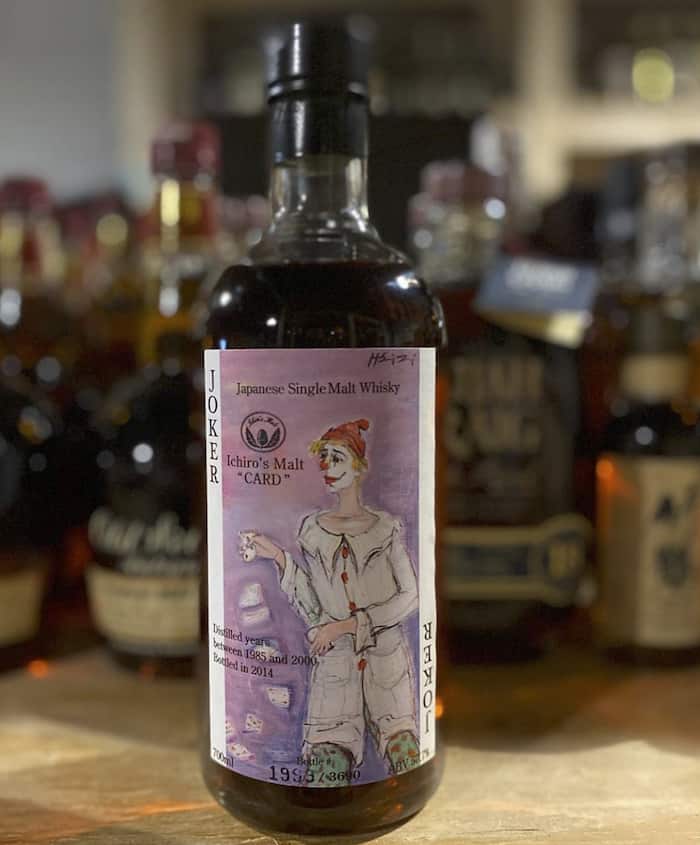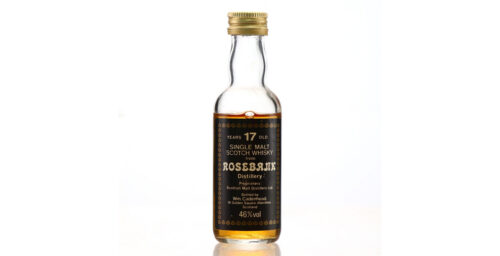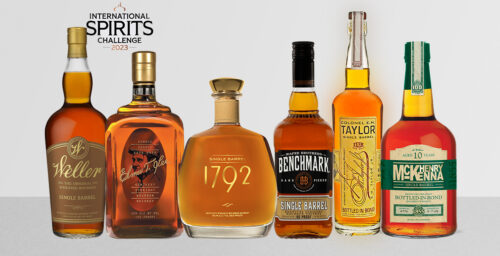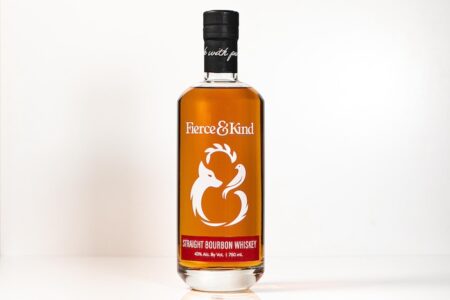Those that like to buy whiskey in secondary markets here in the United States typically find themselves in private social media groups and chat forums to hunt down that rare bottle they desire. It is a gray legal area at best and, given the challenges in shipping spirits across state lines, it doesn’t always end well if authorities confiscate the shipment, the spirit is counterfeit or something happens during the payment process.
One online experience which could offer potentially more legitimacy and safety for all involved are auctions. The online whisky auction market is extremely strong overseas, particularly in Scotland and the rest of the United Kingdom, where a solid number of websites exist that cater to this need. In some cases, the number of bottlings in a single auction on these platforms can number in the hundreds, showcasing a need by many for their existence.
Here in the United States, meanwhile, online whiskey auctions remain very much a niche item. You see a few of the larger domestic auction houses – ones that typically sell across many categories of products – hold an occasional spirits online auction event, but rarely so far has the focus been primarily just on whiskey.
This is where relatively newcomer Unicorn Auctions comes in. Describing themselves as a legitimate auction house out of Chicago, Illinois, this company is focused on replicating the successful online whiskey auction model from Scotland here in the States. It was founded by two restaurant industry vets and whiskey collectors and makes use of both a well designed website and mobile app to engage with interested buyers and sellers.
To learn more about Unicorn Auctions, we chatted recently with one of its co-founders, AJ Heindel. Note, as always, our interviews are edited for clarity and brevity.

The Whiskey Wash (TWW): Talk a little bit first about your background prior to co-founding Unicorn Auctions. Do you have a spirits related background, and how did you come to come to this idea?
AJ Heindel: Yeah, absolutely. I come from, like you said, a spirits background as a beverage and spirits buyer, working in the restaurant and event business for a number of years here in Chicago. I managed beverage programs across a different scale of operations all the way from very tiny, fine dining places to massive concert venues. My co-founder Cody as well comes from the same industry as a beverage buyer. We both kind of earned our way up the ranks from bartending and became avid whiskey fans and collectors in the process.
Once we started making our way to being able to design our own programs and things of that sort, obviously buying the actual whiskey as opposed to just being a big fan, kind of changed the realm of things. That is kind of the beginning of the story of Unicorn Auctions, with both Cody and I working as professionals in the industry and as private collectors and kind of making our way around the secondary market options that are available and discovering a bit of a need for a spirit based US auction approach.
TWW: When you look at the current landscape of the American online auction market, you see right now a number of established auction houses that are much larger in scale that run websites and do auctions on them. The difference though is pretty stark from what you see over in Scotland, where there are websites more similar to what you guys are looking to do in terms of how things are laid out and how you communicate information to potential buyers, et cetera.
Talk about what with Unicorn Auctions you were hoping to accomplish by launching it.
Heindel: I think you hit one aspect of it on the head by mentioning the way the secondary market auctions are structured overseas in Scotland. That was a big influence on us, not just as consumers in the industry. We both worked with those houses over in Scotland repetitively, and also have worked with places domestically in the United States. Like you said, they carry a little bit of a different structure and are more catered towards live auctions. I think if I were to try to explain what we were specifically trying to create, it would be a bit of a combination of both.
We wanted to bring the timed auction structure to the United States. Scotland, like I said, was a bit of a first mover. A lot of that is because Scotch was pretty much the first mover in the world of whiskey, as far as a prices rising dramatically. The market kind of blew up over there first and allowed a handful of auction houses to pop up. There was a lot of success and we always wanted to have a fluid working relationship with an auction house of that sort. The fact of being across the ocean just kind of got in the way a little bit.
We were hoping to take a diverse approach to spirits, not just focusing on one specific thing or the other, but to make sure that we could bring a widespread option to the United States. We wanted to focus on Japanese whisky. We wanted to focus on bourbon as well as Scotch over a myriad of price ranges as well, not just the very expensive stuff. Pretty much our most important goal was to create an accessible option in the United States that didn’t pigeonhole buyers into any one category or the other.
TWW: How did you go about setting up the actual website and your mobile app? What thought process went into how you guys wanted to do this?
Heindel: We’ve always stressed the importance of creativity in business across the board. In our industry, that option presented us with a big opportunity when it comes to media and photographs and videos and things of that sort. One of both Cody and I’s favorite things about working with whiskey over the years was how beautiful these bottles are and the art that goes into the craft.
What we wanted to kind of do was serve as a conduit to portray that art into the secondary market as well. I think a lot of times secondary markets are obviously very value driven. Sometimes the dollars and the cents is all that really matters to some people. Over here we feel quite the contrary. We really wanted to take our time and go the extra mile when it comes to presenting our media and our products and the things that we’re listing on our app in the proper, beautiful way that they deserve.
That kind of drove the development of our platform in general. Everything is pretty bare bones, except for, like I said, our media approach. We really take our time and work very hard to make sure that the pictures and the videos and the actual whiskeys shine through as much as they possibly can.
TWW: You named your site Unicorn Auctions. Why that particular name?
Heindel: That’s a funny story. We actually had a different name from the start and our plan was to use a unicorn as our logo. Over time, we just kind of fell more in love with the unicorn as a bit of a mascot for us. It obviously has a direct connotation in the world of whiskey, and not just whiskey or wine, but also of any sort of bottle of rare alcohol that has earned the nickname unicorn in the past. It just kind of seemed the obvious thing to do was to change the name and to go with Unicorn Auctions as our full blown name and not just the logo.
TWW: Are you guys a legitimate auction house like some of the ones in other cities like New York and San Francisco?
Heindel: Yes, absolutely. I don’t think that scale equates to legitimacy. We are obviously much smaller than many auction houses in New York and Chicago and Los Angeles and Scotland and Hong Kong and everywhere in the world where the secondary market kind of thrives.
For us, we’ve been very happy to carve out our own form of legitimacy. A lot of the legitimacy in the secondary markets in the world is tied to extremely expensive assets. One of my favorite things that I think we’ve accomplished is we’ve found and created a home for the people who want to sell bottles that aren’t pre world war II, that cost $50,000 or a college payment worth of money. We’ve been able to create a legitimate place for people to transact at whatever price level they’re comfortable with.
I think the fact that we’ve been able to offer our service to such a wide range of private buyers and people defines our legitimacy almost more than anything else. We obviously are legitimately operational, just like any auction house is, at a smaller scale. Like I said, we’ve been able to carve out our own little niche and I think we’re very proud of it.
TWW: Online sales and shipping of alcohol in the US is dicey at best. How do you guys navigate that? I know in Scotland for the auction houses, they’re a little more uniform, but here in the US, it’s much more patchwork. How do you guys deal with that?
Heindel: Patchwork is a great way to describe it because of differences from state to state. It is tricky, definitely. That’s why such a big part of the businesses is doing anything we can to help clients find legal shipping solutions to move their product around the United States.
Like I said, there are times when it’s tricky and thankfully we have a lot of local business as well that just comes and does pick ups here in Chicago. We understand that it’s tricky and we know that trying to help out any way we can brings a lot of value to the table. We’ve worked with a myriad of different partners on our end through our licensing to create legitimate channels for all of our clients.
TWW: You created this site, which as you say fits this niche that the American whiskey market sort of needs for more legitimate secondary market sales versus a lot of the less legitimate things that go on in private Facebook groups and classified ad sites and things like that. How has it been going so far?
Heindel: Well, it’s been great. We’re seeing growth every auction, which is obviously fantastic. The metrics that seem to be most exciting is just talking to people and communicating with our users. Like you said, there are a lot of illegitimate and relatively sketchy resources for people trading and buying and selling whiskey to each other throughout the country. A lot of these people who are very passionate about whiskey have been forced into these options in the past. Talking to people and hearing them speak about the value that we’re bringing to the table as a legitimate option has been really exciting.
TWW: Let’s talk a little bit about mechanics. How does getting a bottle to you guys for auction work first off?
Heindel: Well, we hold submissions for every single auction out of our headquarters in Chicago. By law, we have to take legal, full possession of the assets. That’s in correlation with the auction laws in the state of Illinois where we’re based, but most importantly we need to take possession of the assets to guarantee their authenticity and make sure that we examine the bottles properly for issues on anything that is worthy or of note to our clients.
Then, from there, it’s a hands off experience for the client. We handle all of the marketing in house. We do all the photography in house, all the promotion in house. We then correlate with our clients about their appraisal estimates and where they’d like their assets to be in the auction. Then from there everything is handled digitally. The entire sales platform is all contact free and online.
TWW: You take bottles not just from the local market, but from pretty much anywhere?
Heindel: That depends on the shipping problem there a little bit. Definitely not pretty much everywhere, but we have been able to arrange out of state shipping solutions for clients in the past so that they can submit bottles to us from out of state, from their home, similarly to the way someone would sell something at a traditional online auction like eBay or something of the sort. Obviously, like I said, because of the laws and because of the need for authentication, as opposed to an eBay model where someone would be able to send it straight from their house to whoever bought it, we have to remain the middleman in that process.
TWW: If one wants to buy a bottle through your auction, how does the process work.
Heindel: That, again, is all digital and app based. We have bidding platforms both on the web and for iOS and Android in app form. Like I said, we host auctions on a monthly basis in the format of a timed auction, which means there’s a specific start and end to the auction. All of the items are available for bidding throughout the entire period.
From there, we operate completely contact free e-commerce, which is great given the current environment with the pandemic. We have a more personal payment processing department where we actually communicate with our clients and make sure that we’re not just putting them through a robotic process of collecting their invoice money.
We, like I said, communicate firsthand with all of our buyers, arrange the necessary details after the auctions have ended. Then, we either meet them locally for pickups, or if possible, arrange shipment out of state.
TWW: On the buyer and seller side, what are your rates?
Heindel: Our buyer’s premium is 15% and our sellers commission is 5% plus $5 a bottle. The only additional expenses on the buying side are sales tax. We have no membership fees. Everything is free to register, free appraisals. Obviously, like I said, open for contact at any time. We try to be an open conduit for our clients for whatever resource they might need from us.
TWW: How has bidding been going so far? With some auction sites, especially those in Scotland, you’ll sometimes see furious bidding go on for certain bottles. Would you say that that has been the case with some of the things you have up on your site?
Heindel: What we see is a lot of what we call bookend bidding, where as soon as the auction launches at the beginning you see a pretty furious initial bidding war over some of those more desirable bottles.
Then, the other end of the bookend is even more fun at the end. We have functionality built into our app where if any bid is made in the last 10 minutes on any item, it extends the auction on that item for 10 more minutes and allows people to keep bidding. That keeps going. Every time there’s a bid made, the auction is extended an extra 10 minutes for that specific item. Not only is it a bit of a behind the scenes bidding war that we can watch, but watching along on the app is actually a lot of fun as well.
You can kind of see where the intense action is and where the bidding was really drawn out.
TWW: Talk a little bit about what happens to bottles once you take possession of them. How are they secured? How do you manage the inventory, et cetera?
Heindel: The first step is the authentication process and that detailed review to make sure that we have all the proper disclosures ready for the auction. Let’s say, for example, if a label is a little bit ripped or a little bit scuffed or something of that sort.
From there, the next step is photo and video. We take extensive photos of all of our bottles. I try to go the extra mile to make sure that, like I spoke about earlier, that content represents the art of the whiskey in an appropriate manner.
Then from there, the bottles go into a pretty intense storage environment. We prepackage them for auctions that are approaching in the next week or so. They get extensively wrapped and protected and shielded from light and from potential damage and anything. We basically foolproof the bottles with the fortification of packing materials and then store them in our temperature controlled warehouse for shipping. They pretty much sit there ready to go while the auction is processing and going on. Then as soon as they’re done, they’re all ready for fulfillment.
TWW: With what you have going on there, how frequently are you doing auctions right now?
Heindel: Once a month.
TWW: Do you see increasing the frequency of that as you scale? Or do you think once a month is good right now?
Heindel: I would say for the foreseeable future, we’ll probably stay on the once a month schedule and instead focus on trying to scale the size of the auctions as opposed to trying to have more frequent auctions. The idea of moving to a more frequent model is definitely on the table.
It’s not something that we think is a bad idea or anything of that sort. It’s just we set out with the goal of monthly actions from the start. We were able to accomplish our first three auctions over the course of four months. We’ve kept pretty good pace. I think what we’d like to see most is to have our auctions consistently be running on a monthly basis and to be scaling in size of each auction.








